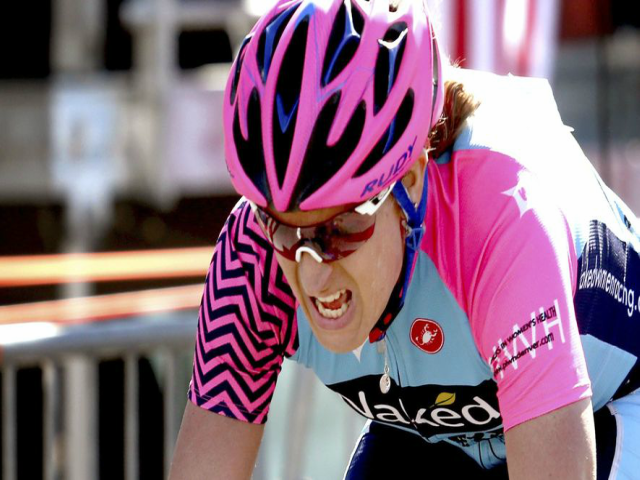A professional cyclist born a man, and is now winning races as a transgender woman, says the science proves that transgender athletes do not have an unfair advantage, especially after they have transitioned from men to women.
Born Jonathan Bearden, but now known as Jillian, the cyclist says that after entering into a year of hormone therapy to scale back testosterone levels, the science has proven that power levels fall enough to come in line with the physical capabilities of natural-born female athletes, the Denver Post reported.
Bearden comes from a troubled family. His brother killed himself in 2005, and he confessed that at one point a few years ago he, too, was contemplating suicide. Then he realized that the only cure for his mental anguish was to fully transition to become a woman.
Before transitioning, Bearden had already entered into the world of professional bicycle racing and once transitioned to female, he wanted to continue that pursuit.
Yet, would his inclusion in female racing be fair to the other contestants? That was the important question, and cycling authorities had decided that the criteria for transgender women had to be addressed to make it fair for all.
“The IOC’s 2003 rules governing transgender athletes required them to have gender-reassignment surgery to compete in Olympic sports,” the Post reported.
It wasn’t just the surgery. There was also the problem of what to do about the natural testosterone that gives male athletes so much more power than natural female athletes.
The solution was to measure those testosterone levels.
“The new rules simply require transwomen to keep testosterone below a certain level for a year before competing and must present a doctor’s note showing their testosterone levels are below the IOC threshold. The IOC recommendations include no restrictions for athletes transitioning to male,” the paper wrote.
Indeed, after a year of hormone therapy. Bearden noted that her power had seriously slipped as her testosterone level fell.
As an elite male racer, she had regular benchmarks measuring her power and lactate threshold. After more than two years of blocking testosterone and boosting estrogen, her wattage output has dropped by 11.4 percent. That mirrors the performance gap between top-tier male and female athletes.
“The testosterone is gone, so you have to find a new way to get to the new you and the new me was working on my mental game,” Bearden said. “Now it’s all mental.”
Bearden’s experience is echoed in the work of medical physicist Joanna Harper who is studying transwomen athletes. “Harper’s study showed transwomen runners slowed and lost strength as they blocked testosterone and added estrogen,” the Post said.
The International Olympic Committee (IOC) insists that the new testosterone test proves that they can rely on science and avoid philosophical or political debates. The science has “modernized” the IOC’s view, the report said.
“We basically said this is our policy, and this is what’s fair, and this is what we are doing,” said Chuck Hodge, the technical director for USA Cycling.
The Denver paper also noted that cycling is early to investigate the topic:
USA Cycling is at the forefront of Olympic-sport governing bodies that are crafting policies for transgender athletes. Athletes like Bearden, with her before-and-after power data, support more science-based decisions, said Ashland Johnson, the director of education and research at the Human Rights Campaign who recently conducted a training for U.S. Olympic Committee coaches and administrators to help embrace athletes of every stripe.
“We are seeing more of a move among governing bodies, where instead of making policies that are dependent on old stereotypes based on gender, decisions are based in science, inclusion and fairness,” she said.
This year Bearden won Arizona’s El Tour de Tucson, “one of the largest road bike races in the country,” the paper noted. She has also won high standing in several other races, fifth place in the Salida Classic criterium and third in a race the following day.
The repeated high standing may still strike some as suspicious that her body has enough male characteristics that her competition is unfair to athletes properly born female and Bearden says she still gets threats and negative comments because she is a transwoman in sports.
While the IOC may feel that it is on the right track to figuring out how to allow transwomen to compete with natural born women, it is clear that the “science” has a long way to go before becoming settled.
Follow Warner Todd Huston on Twitter @warnerthuston.

COMMENTS
Please let us know if you're having issues with commenting.